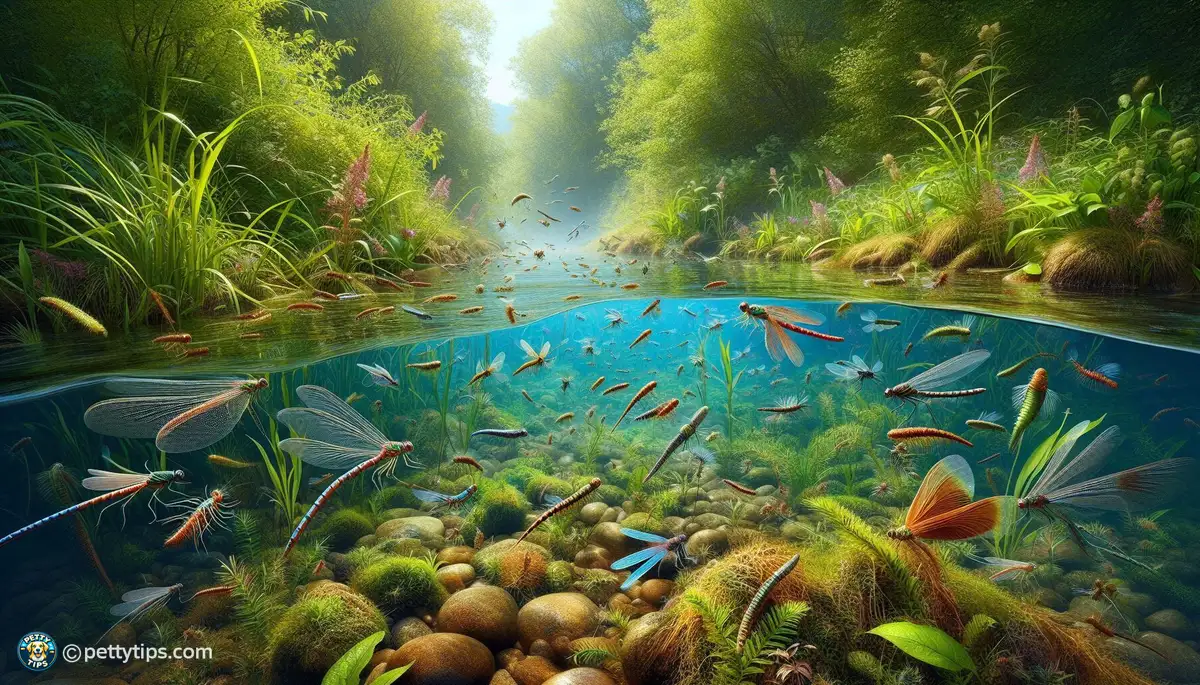- Home
- Exotic Pets
- Enhancing Water Quality for Healthy Aquatic Invertebrates
Enhancing Water Quality for Healthy Aquatic Invertebrates

The Foundation of Aquatic Life
water quality is the cornerstone of maintaining a thriving aquatic ecosystem, especially when it comes to the well-being of aquatic invertebrates. These tiny creatures play a crucial role in the balance of aquatic environments, serving as food sources for larger animals and contributing to nutrient cycling. Ensuring optimal water quality is essential for supporting their health and abundance.
Factors Affecting Water Quality
Several factors can impact water quality, including temperature, pH levels, dissolved oxygen, and pollutants. Fluctuations in any of these parameters can have adverse effects on aquatic invertebrates, disrupting their physiological processes and ultimately leading to population declines. Understanding these factors and their interplay is vital for creating suitable habitats for these delicate organisms.
Monitoring and Assessment
Regular monitoring and assessment of water quality parameters are fundamental for identifying potential issues early on. By keeping a close eye on factors such as temperature fluctuations, oxygen levels, and pollutant concentrations, we can proactively address any imbalances and take corrective measures to maintain a healthy environment for aquatic invertebrates.
Remediation Strategies
Implementing remediation strategies is crucial for mitigating water quality issues and restoring balance to aquatic ecosystems. Techniques such as aeration, nutrient management, and pollutant removal can help alleviate stressors on aquatic invertebrates and promote their overall well-being. Additionally, incorporating natural filtration methods, such as wetlands and riparian buffers, can further enhance water quality and support diverse aquatic life.
Optimizing Habitat Conditions
Creating Suitable Environments
Providing suitable habitat conditions is essential for supporting the diverse needs of aquatic invertebrates. This includes ensuring adequate substrate for burrowing species, sufficient vegetation for shelter and food sources, and appropriate water depth and flow rates. By mimicking natural habitat conditions as closely as possible, we can encourage the proliferation of these vital organisms.
Maintaining Water Chemistry
Maintaining stable water chemistry is paramount for the health and survival of aquatic invertebrates. Fluctuations in pH levels, nutrient concentrations, and other chemical parameters can disrupt biological processes and lead to adverse effects on invertebrate populations. Regular water testing and adjustments can help maintain optimal conditions for these sensitive organisms.
Minimizing Pollution
Controlling pollution is essential for preserving water quality and safeguarding aquatic invertebrates from harmful substances. Pollution sources such as agricultural runoff, industrial discharge, and urban runoff can introduce toxins and pollutants into aquatic environments, posing significant threats to invertebrate populations. Implementing pollution prevention measures and promoting sustainable practices are critical steps in protecting these vulnerable organisms.
Promoting Biodiversity
Promoting biodiversity is key to fostering resilient aquatic ecosystems capable of supporting healthy invertebrate communities. By conserving and restoring natural habitats, enhancing connectivity between aquatic systems, and minimizing habitat fragmentation, we can create environments that are conducive to the coexistence of a wide range of invertebrate species. biodiversity conservation efforts play a vital role in preserving the ecological balance of aquatic ecosystems and ensuring the long-term survival of invertebrate populations.
Implementing Best Management Practices
Educating Stakeholders
Education and outreach are essential components of promoting water quality conservation efforts. By raising awareness about the importance of maintaining healthy aquatic ecosystems and the role of invertebrates within them, we can garner support for conservation initiatives and encourage responsible stewardship of natural resources. Engaging stakeholders, including policymakers, landowners, and the general public, is critical for fostering a culture of environmental awareness and action.
Collaborative Conservation
Collaboration among various stakeholders is crucial for effectively addressing water quality challenges and implementing sustainable management practices. By working together across sectors and disciplines, we can leverage collective expertise and resources to develop innovative solutions and implement comprehensive conservation strategies. Collaborative approaches empower communities to tackle complex environmental issues and achieve meaningful results for aquatic invertebrate conservation.
Adaptive Management
adopting an adaptive management approach is essential for responding to changing environmental conditions and improving conservation outcomes over time. By monitoring the effectiveness of management actions, collecting data on ecosystem responses, and adjusting strategies as needed, we can enhance the resilience of aquatic ecosystems and ensure the long-term viability of invertebrate populations. Adaptive management enables us to learn from experience, refine our approaches, and continually improve our conservation efforts.
Long-Term Sustainability
Ensuring the long-term sustainability of water quality conservation efforts requires a commitment to ongoing monitoring, evaluation, and adaptive management. By integrating conservation practices into land use planning, resource management, and policy development processes, we can mainstream sustainable practices and promote responsible stewardship of water resources. Investing in long-term sustainability fosters resilience, promotes ecosystem health, and safeguards the well-being of aquatic invertebrates for generations to come.
